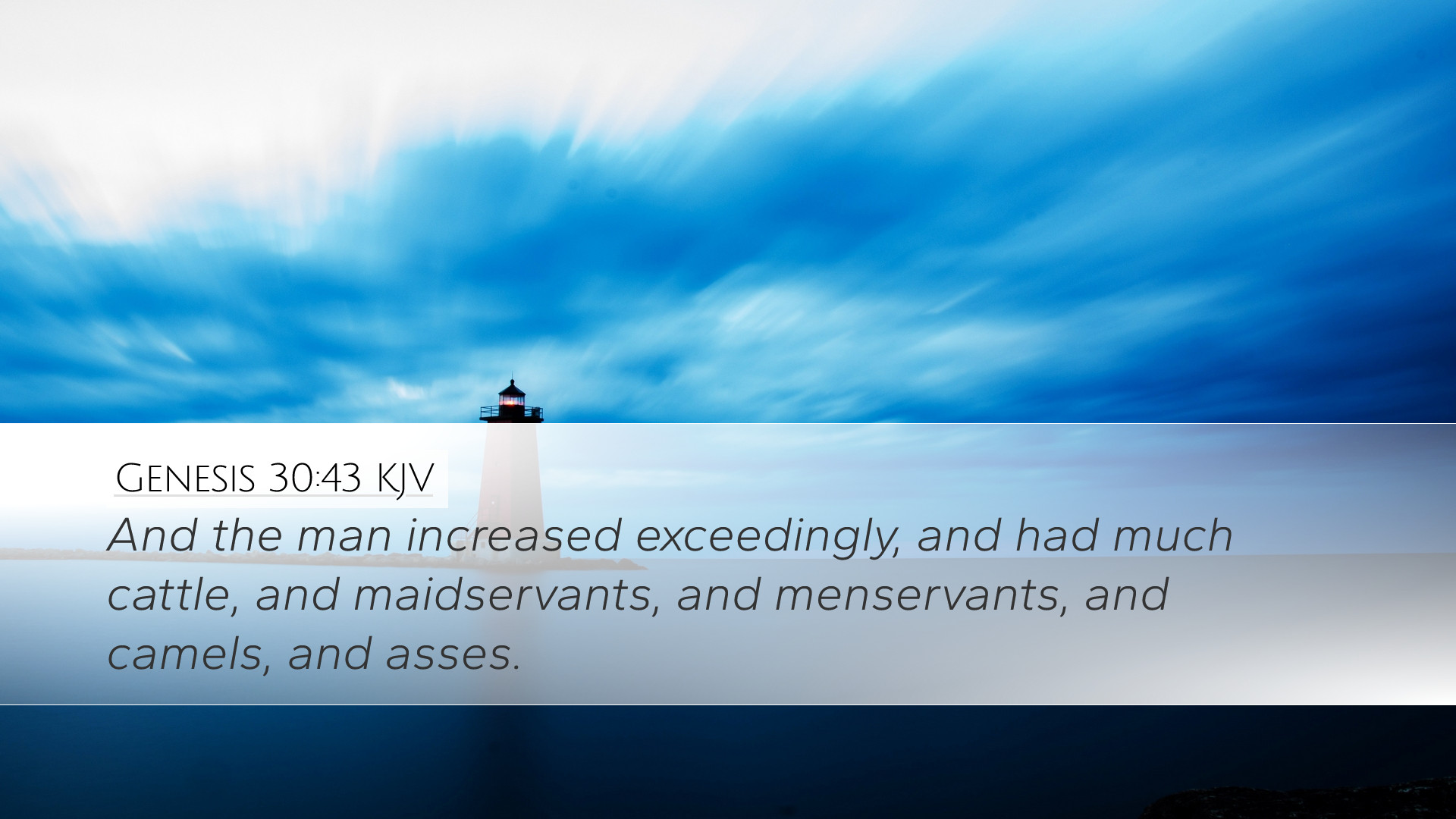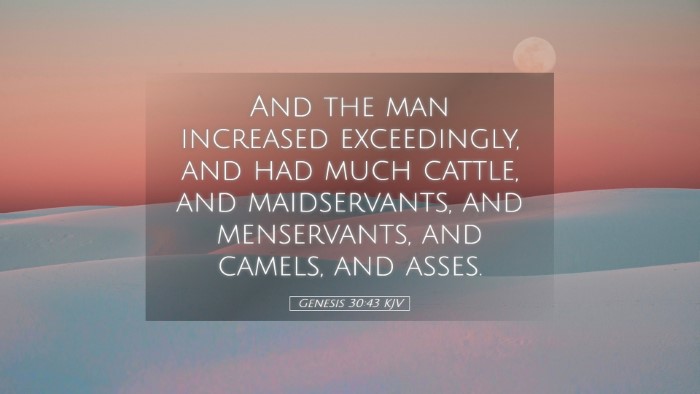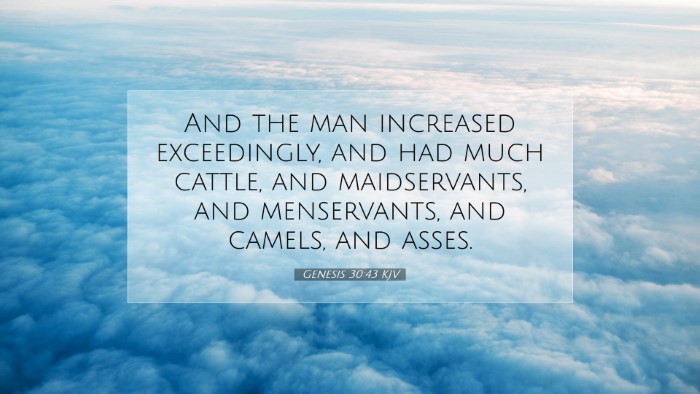Commentary on Genesis 30:43
Genesis 30:43 states: "And the man increased exceedingly, and had much cattle, and maidservants, and menservants, and camels, and asses." This verse captures a pivotal moment in the life of Jacob during his time with Laban, highlighting the themes of divine blessing, prosperity, and the complex nature of human relationships.
Contextual Background
To fully understand this verse, it is essential to contextualize Jacob's journey. After fleeing from his brother Esau, Jacob finds refuge with Laban. Over the years, he serves Laban and engages in a series of negotiations for the livestock—both a reflection of the pastoral culture of the time and a deeper representation of Jacob's cleverness and resourcefulness.
The Divine Blessing
Matthew Henry highlights the underlying divine providence in Jacob's success. Even amid the scheming of Laban, God's favor rests on Jacob. This suggests a key theological principle: God often intervenes in the lives of His people, bringing about prosperity in seemingly adverse situations.
- God's Sovereignty: Laban attempts to control the terms, yet God’s purpose prevails, showcasing His supremacy over human plans.
- Divine Favor: Jacob's increase is attributed to God's blessing rather than merely his shrewd dealings.
Jacob's Resources
Albert Barnes provides insight into the significance of the resources Jacob acquires—cattle, servants, and camels—which were vital in ancient Near Eastern society for wealth and status. The mention of "maidservants" and "menservants" reflects the social structure and the importance of labor in agricultural life.
This abundance can be seen as both a literal and metaphorical representation of God's provision. It reminds readers that the material blessings we receive are often manifestations of divine grace.
Human Relationships and Conflict
Adam Clarke emphasizes the relational dynamics between Jacob and Laban. Though Jacob is prospering, he is also surrounded by a complicated web of familial and business ties. Laban’s attempts to manipulate the situation lead to tension and conflict, demonstrating the challenges inherent in human dealings.
- Strife and Manipulation: The verse subtly alludes to the friction between those who seek to control circumstances versus those who live under God’s guidance.
- Trusting God: Jacob's eventual gains underscore the importance of maintaining faith and trust in divine promises amidst personal struggle.
Theological Implications
The overarching themes of this passage invite deeper reflection on how God's providence intertwines with human actions. Pastor and theologian insights may note that while Jacob employed strategies to secure his wealth, it was ultimately God's providential care that ensured his success.
Application for Today
This commentary holds contemporary relevance for pastors and theologians. In a world where personal ambition often supersedes moral considerations, Genesis 30:43 reminds us that true prosperity is undergirded by divine blessing and integrity. Christian leaders and believers are called to trust and honor God's design over the schemes of the world.
Key Lessons
- Divine Guidance: Seek God’s guidance in every endeavor, recognizing that success comes through Him.
- Integrity in Relationships: Navigating relationships with honesty fosters true prosperity.
- Contentment and Trust: Finding contentment in God’s provision, regardless of current circumstances.
Conclusion
Genesis 30:43 serves as a powerful testament to the intricacies of divine blessing amid human complexities. As Jacob flourished, it was not only a reflection of his cunning but also of a God who is deeply involved in the affairs of humanity. For scholars, this passage invites ongoing exploration of the interplay between divine sovereignty and human agency, providing rich material for teaching and reflection.


